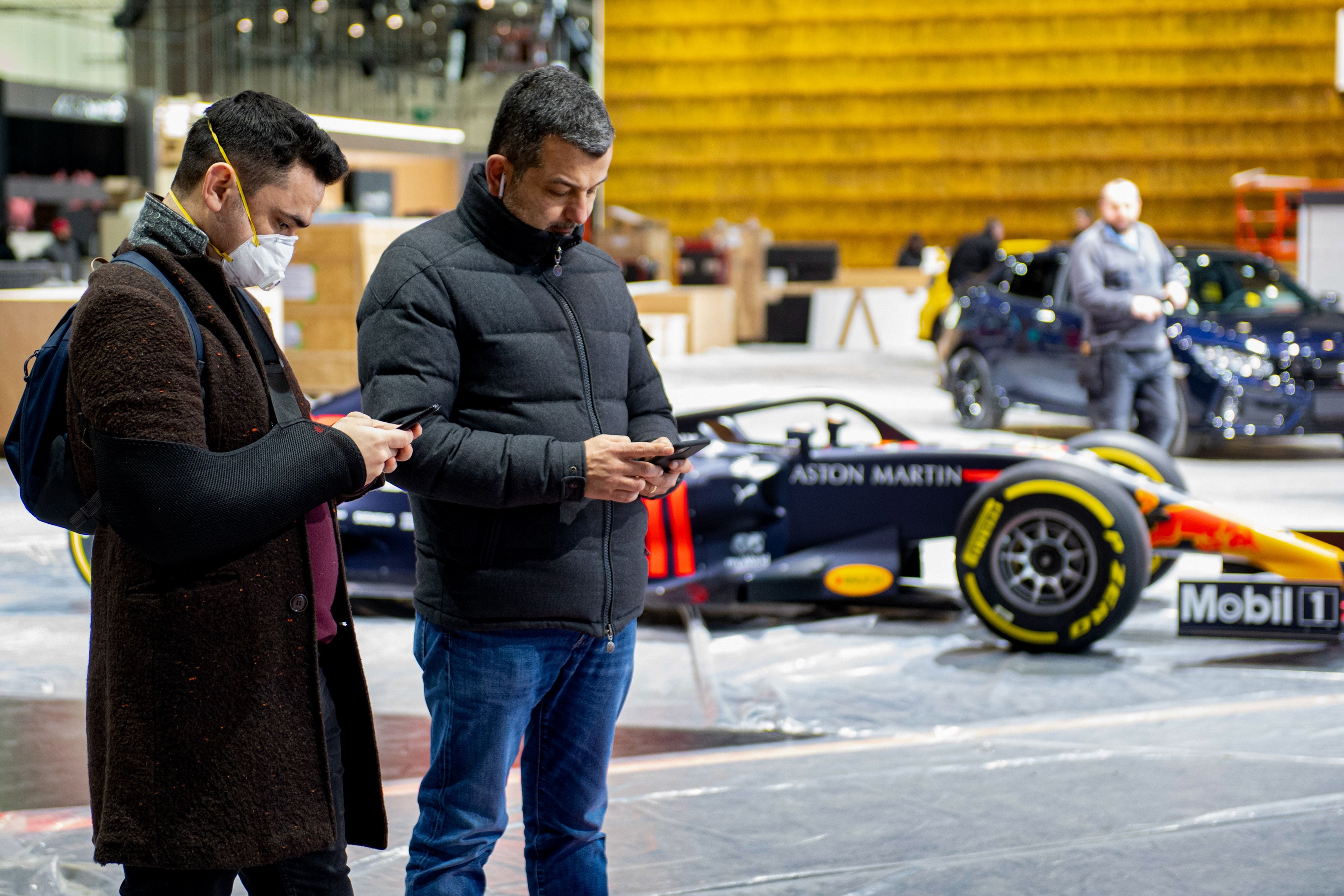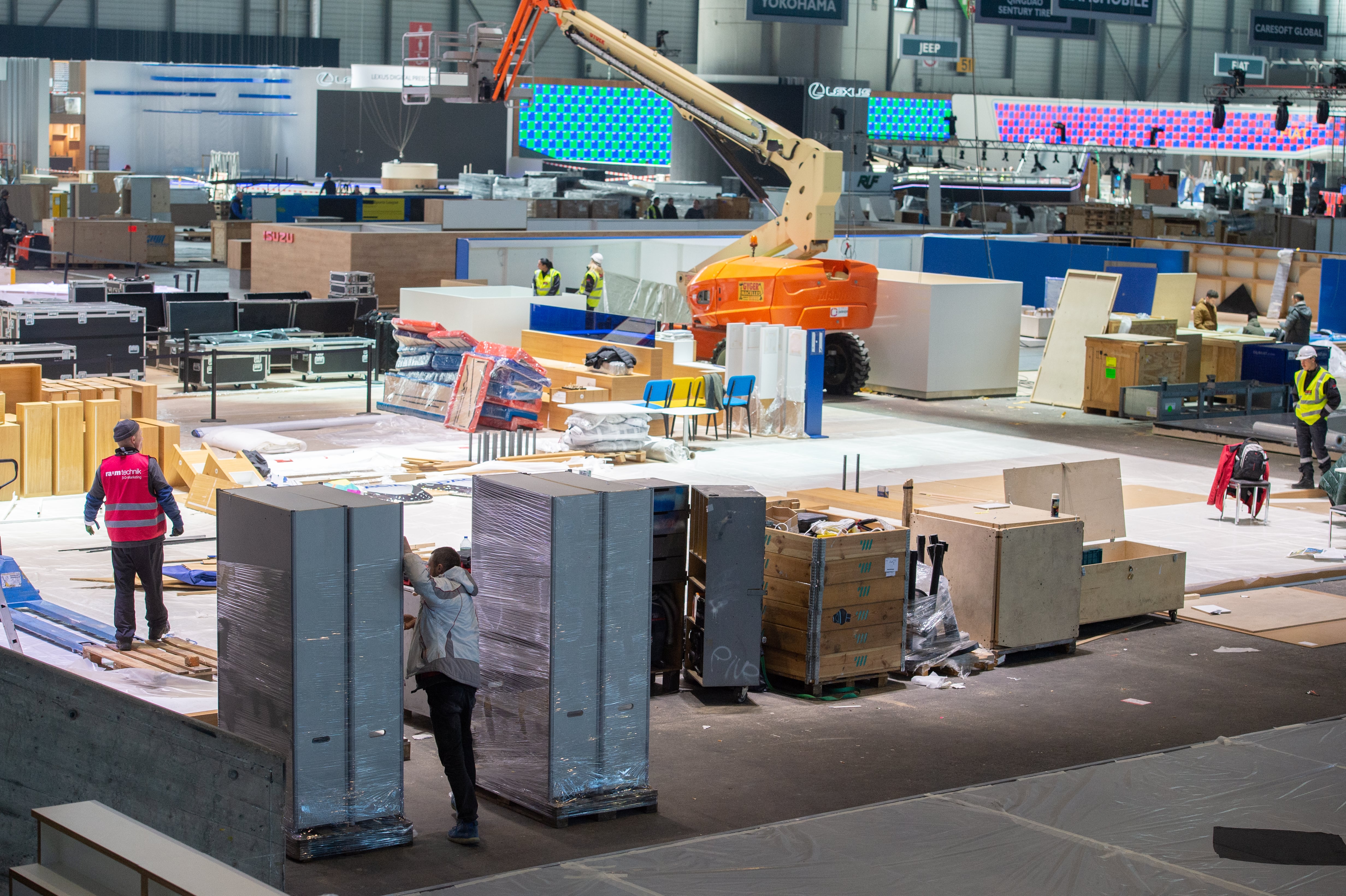Monday was supposed to be the first-day journalists got a look at the 2020 Geneva Auto Show, but on Friday organizers were forced to cancel the entire show due to the worldwide spread of the coronavirus. The abrupt cancellation of one of the most tech-forward car shows in the industry has sparked speculation about a similar move by organizers of the New York Auto Show this spring.
The decision in Switzerland effectively nixed what would have been a marquee marketing opportunity for electric vehicles, which are revving their engines with a sharp uptick in new models and new offerings from both legacy automakers and ambitious EV startups.

In Europe in particular, government fines on automakers for their vehicles’ greenhouse gas emissions have spurred a belated but rapid acceleration in EV debuts. Yet the outsize investments in electrification have come as automakers saw global sales last year plummet by 4% – the second straight annual drop, and the steepest fall since the start of the Great Recession in 2008.
“People in Europe were calling 2020 the year of the EVs. It's a blow to the manufacturers who are already going through a very bad year,” said Christoph Domke, senior director and mobility lead in the Clean Energy Practice at FTI Consulting. “It's an industry where we see declining costs going forward, we see more and more manufacturers launching vehicles, and the public is getting more interested. It would've been a good opportunity, and a lot of people are excited about electric vehicles to see them at the shows.”
Electric vehicles may be particularly exposed to the impacts of the coronavirus. They’re essentially “a battery on wheels,” and that central component is made disproportionately in China, said Sam Jaffe, founder and managing director of Cairn Energy Research Advisors. Even before the outbreak, automakers had struggled to cope with battery-supply bottlenecks, with major automakers like Audi, Jaguar and Hyundai forced to halt production due to shortages. And on the consumer side, China is meanwhile the biggest driver in EV sales growth.
“China is the biggest market for electric vehicles, and it's important for the global automotive supply chain, particularly with batteries. There will be a lot of disruption, and the disruption will be significant in the EV space because of China's exposure to this,” Domke said. “Certainly EVs are over-proportionally affected.”
The cancellation also marks the latest setback for major auto shows, which have seen interest and attendance sharply decline among manufacturers and motorheads alike. The North American International Auto Show, in the historic home of the American auto industry in Detroit, moved its annual gathering from January to June this year, in a bid to draw more attendees after visitor numbers dropped by 35,000 people from 2018.

Yet auto shows don’t hold the monopoly on big industry reveals that they once did. Automakers from Ford to EV startup Fisker have found other ways to reach consumers: Some have opted to make their biggest announcements at flashy tech-centric conventions like the Consumer Electronics Show in Las Vegas, while others have organized star-studded, neon-lit media events that can resemble a cross between an iPhone launch and an NBA starting lineup intro.
Automakers have heavily embraced both approaches in introducing their EVs – the better to emphasize their next-gen tech bona fides.
“There's lots of other ways to get buzz on an EV model,” said Kristin Dziczek, vice president at the Center for Automotive Research. “The undercurrent here is that auto shows here, in general, are struggling for what's their relevance and what's their role, as attendance has fallen off and automakers have moved to more of these special events.”
The extent of the coronavirus’ impact on the auto market, and EVs in particular, is far from clear. Yet while EVs are unusually exposed to the economic impacts of the virus, they also make up a small portion of the global automotive market. That may help insulate EV-only startups from the worst of the economic pain inflicted by the coronavirus.
“EV sales are 4.3% of the U.S. market last year, so it's not a huge segment, and a large portion of those are Tesla Model 3s, where they're making their batteries at the Gigafactory in Nevada,” Dziczek said. “As long as it restarts in a few months we'll see a rebound and maybe even a strong rebound.”
Vehicle sales in China in 2003, for example, surged as the SARS epidemic subsided – a bounce that may have been partly driven by “people who had been using public transit and decide that maybe they'll need a car and don't want to be exposed to a virus,” Dziczek said. However, it also correlated with robust growth overall in the Chinese automotive market sparked by rising wages and the country’s booming GDP.
“It was a factor, and at least according to some of our data, that was some of their reason for why they were purchasing vehicles, but what percentage was related to a post-SARS bounce is hard to make and not a claim we’ve made previously,” said Peter Nagle, a senior analyst in the Autos Economics Group at the consulting firm IHS Markit.
The organizers of the New York Auto Show, in the wake of the announcement from Geneva, said that they plan to press on with the Manhattan event in April.
“With just under six weeks to go before the 2020 New York International Auto Show’s press preview days, we are moving forward with plans to open the Show as scheduled,” the Greater New York Automobile Dealers Association said in a statement. “We are in communication with state and local officials and the Jacob K. Javits Convention Center, and, at this point, there are no plans to cancel any shows at the facility. The Javits Center is taking precautionary measures inside the venue to help prevent the spread of respiratory viruses, and the New York Auto Show will follow its lead to protect exhibitors and attendees.”



